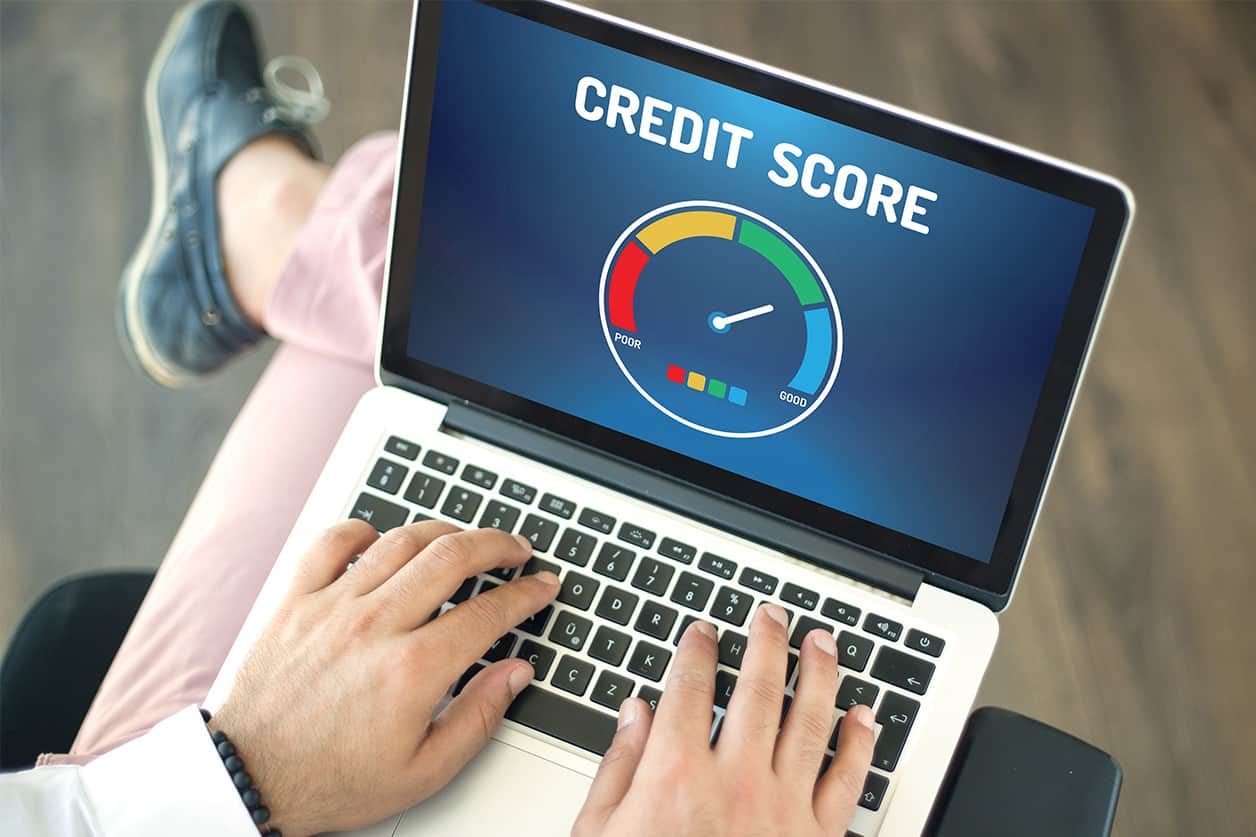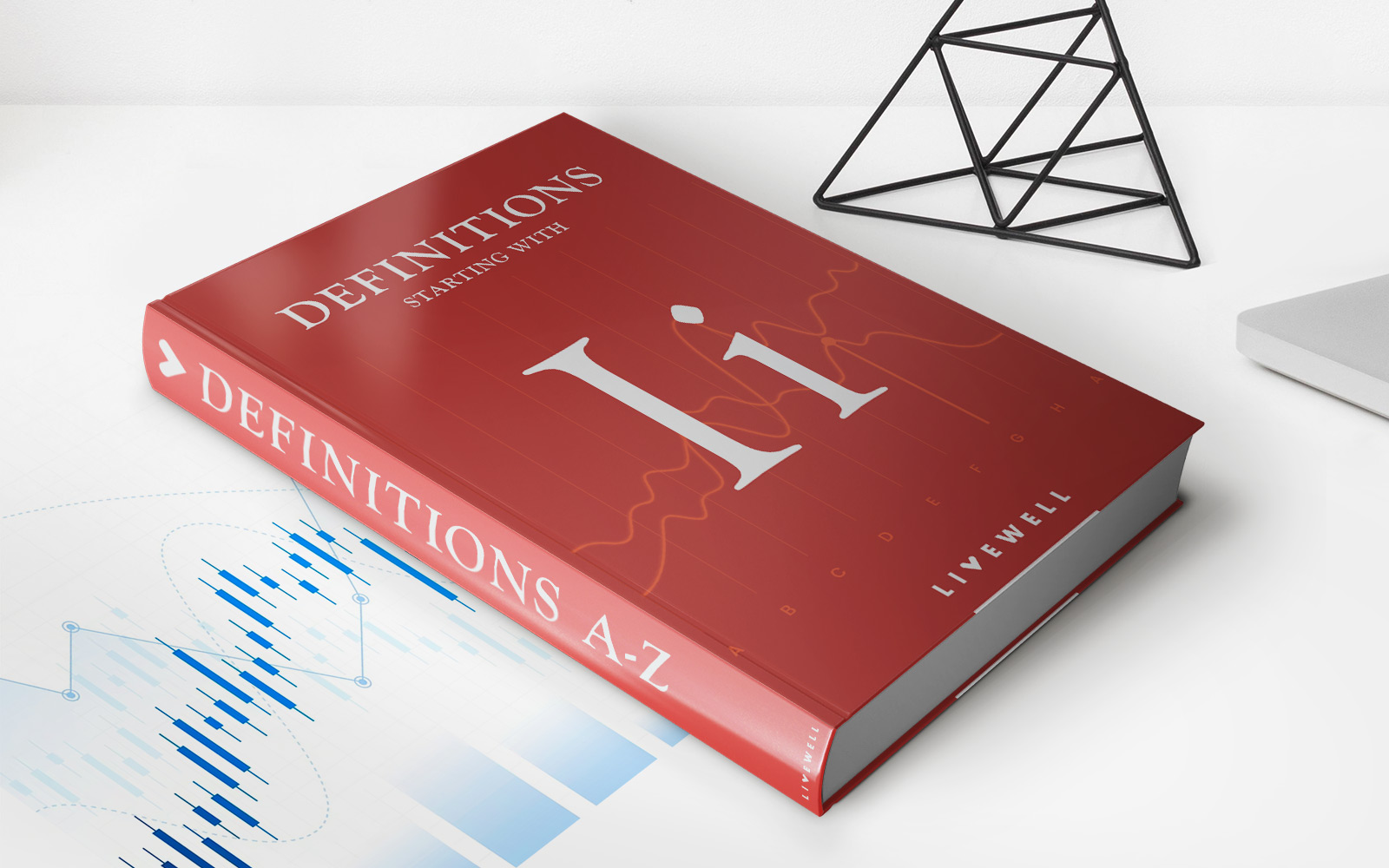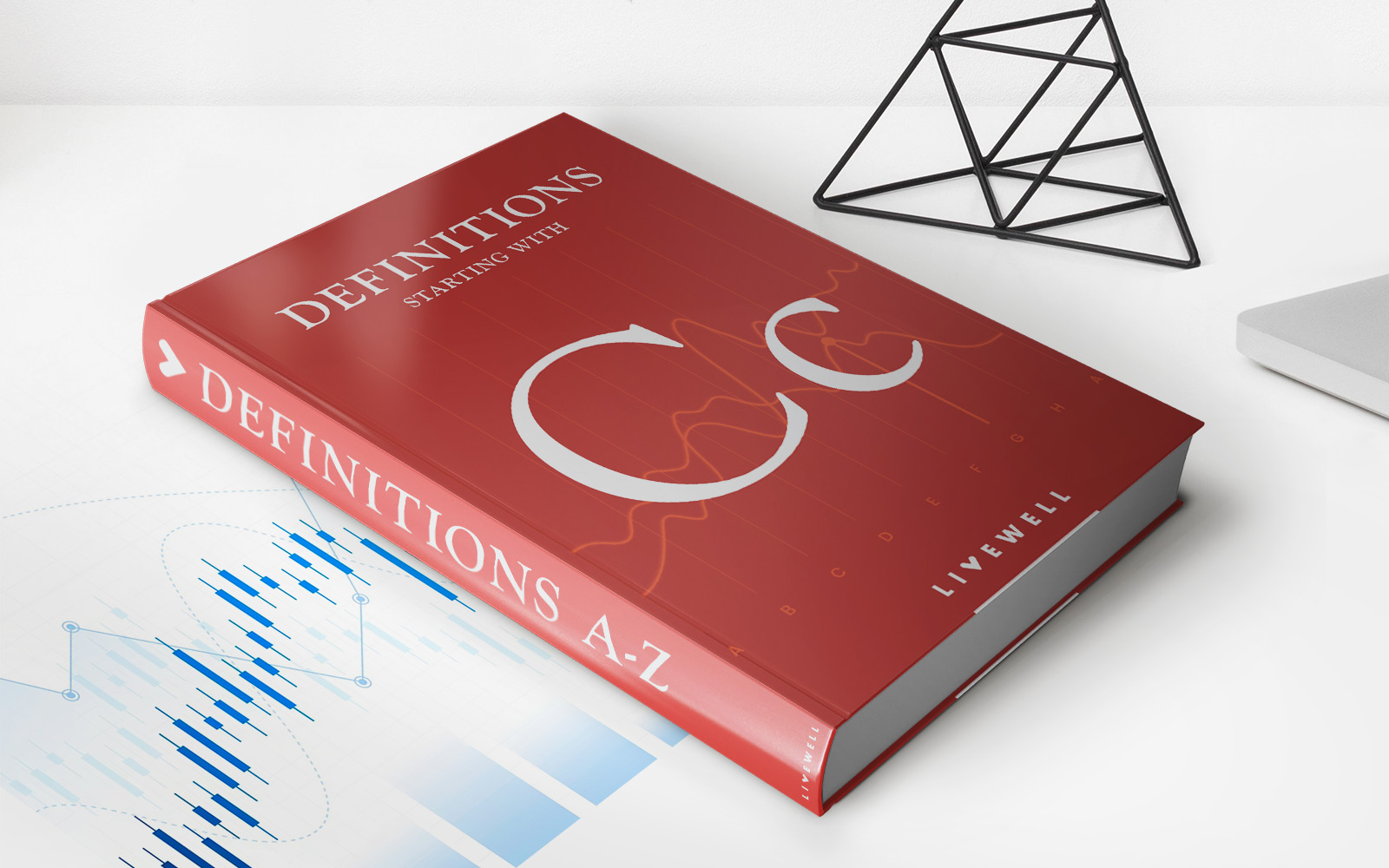

Finance
How Does Discharged Debt Affect Your Credit
Published: January 8, 2024
Understanding the impact of discharged debt on your credit is crucial for financial planning. Explore how finance and credit are intertwined in this insightful guide.
(Many of the links in this article redirect to a specific reviewed product. Your purchase of these products through affiliate links helps to generate commission for LiveWell, at no extra cost. Learn more)
Table of Contents
Introduction
Debt is a common aspect of many people’s lives, and it can come in various forms, such as credit card debt, student loans, or medical bills. Sometimes, individuals find themselves in situations where they are unable to manage their debt and are left with no choice but to seek relief through bankruptcy. When someone files for bankruptcy, their debts may be discharged, meaning they are no longer legally obligated to repay them. However, the impact of discharged debt on their credit can be significant and long-lasting.
In this article, we will explore the concept of discharged debt and how it affects your credit. We will discuss the different types of discharged debt, the impact on your credit score, the duration it remains on your credit report, and the challenges you may face when trying to obtain new credit. Additionally, we will provide some tips for rebuilding your credit after experiencing discharged debt.
It is essential to understand the implications of discharged debt on your financial future. While bankruptcy may offer a fresh start, it comes with certain consequences. By gaining a better understanding of how discharged debt impacts your credit, you can make informed decisions to mitigate its effects and work towards rebuilding your financial reputation.
What is discharged debt?
Discharged debt refers to the forgiveness or cancellation of a debt through a legal process, typically through bankruptcy. When a person files for bankruptcy, they are seeking relief from overwhelming debt and a chance to start fresh financially. In bankruptcy, there are two common types of debt discharge: Chapter 7 and Chapter 13.
In Chapter 7 bankruptcy, also known as liquidation bankruptcy, a person’s non-exempt assets are sold to repay creditors. However, certain debts, such as credit card debt, medical bills, and personal loans, may be eligible for discharge. When a debt is discharged in Chapter 7 bankruptcy, the debtor is no longer liable to repay the debt, and creditors are prohibited from taking any further collection action.
Chapter 13 bankruptcy, on the other hand, involves a repayment plan where the debtor makes regular payments to their creditors over a set period, typically three to five years. At the end of the repayment plan, the remaining eligible debts are discharged. This type of bankruptcy allows individuals to keep their assets while still receiving relief from their debts.
It’s important to note that not all debts are dischargeable in bankruptcy. Certain obligations, such as child support, alimony, most tax debts, and student loans, generally cannot be discharged. However, there may be exceptions or specific circumstances where these debts can be eliminated.
Once a debt has been discharged, the debtor is no longer legally obligated to repay it. However, the discharged debt may still appear on the individual’s credit report, which can have implications for their creditworthiness and financial future.
Types of discharged debt
When filing for bankruptcy, different types of debts may be discharged depending on the bankruptcy chapter you file under. Here are some common types of debts that can be discharged:
- Credit card debt: Unsecured credit card debt is one of the most common types of debt that can be discharged in bankruptcy. This includes outstanding balances on credit cards, store cards, and other lines of credit.
- Medical bills: Medical expenses can quickly mount, leaving individuals with significant debt. In bankruptcy, medical bills can often be discharged, providing financial relief for those burdened by medical debt.
- Personal loans: If you have taken out a personal loan and are unable to repay it, filing for bankruptcy may allow you to discharge this debt. Whether it is a loan from a bank, a friend, or family member, it can generally be discharged.
- Unpaid utilities: Past-due utility bills, such as electricity, water, or gas bills, can be discharged in bankruptcy. However, it’s important to note that you may need to establish new utility accounts and pay security deposits after bankruptcy.
- Repossessed vehicle or foreclosed home deficiency: If your vehicle was repossessed or your home was foreclosed upon, and the sale of the asset did not cover the outstanding loan balance, the remaining deficiency can often be discharged in bankruptcy.
- Legal judgments: Certain types of legal judgments, such as civil judgments or lawsuit settlements, can be discharged in bankruptcy. However, there may be exceptions for judgments related to fraud or intentional harm.
It is important to consult with a bankruptcy attorney to determine which types of debts can be discharged in your specific situation. The eligibility for debt discharge can vary depending on the bankruptcy chapter, individual circumstances, and local bankruptcy laws.
How does discharged debt affect your credit?
Discharged debt can have a significant impact on your credit, as it indicates a history of financial difficulties. Here are some ways in which discharged debt can affect your credit:
- Credit score: One of the most immediate impacts of discharged debt is a decrease in your credit score. Bankruptcy and discharged debts are considered negative events by credit reporting agencies, and they can lower your credit score by a significant amount.
- Credit report: Discharged debts may remain on your credit report for a certain period, depending on the bankruptcy chapter filed. In most cases, Chapter 7 bankruptcy and the associated discharged debts will stay on your credit report for ten years. Chapter 13 bankruptcy and discharged debts typically remain on your credit report for seven years.
- Difficulty obtaining new credit: After experiencing discharged debt, obtaining new credit may be challenging. Lenders and financial institutions are likely to view you as a higher credit risk, making it more difficult to qualify for loans, credit cards, or favorable interest rates. However, it’s important to note that obtaining new credit is not impossible, and there are steps you can take to rebuild your credit over time.
- Higher interest rates: If you are able to obtain new credit after discharged debt, you may be offered higher interest rates due to the perceived higher risk. Lenders will likely consider you a less favorable borrower and may charge higher interest rates as a result, which can increase the cost of borrowing.
- Negative impact on future financial decisions: Discharged debt can impact other areas of your financial life as well. It may affect your ability to secure a lease for housing, obtain insurance coverage, or even get hired for certain jobs. Some employers and landlords may review credit reports as part of their screening process, and a history of discharged debt may raise concerns about your financial stability.
While the impact of discharged debt on your credit can be significant, it is important to remember that it is not permanent. With time, responsible financial habits, and strategic credit-building actions, you can work towards improving your credit score and overcoming the challenges posed by discharged debt.
Impact on credit score
Discharged debt can have a significant impact on your credit score. Your credit score is a numerical representation of your creditworthiness, and it is used by lenders to assess your ability to repay borrowed funds. Here are some key points to understand about the impact of discharged debt on your credit score:
- Decrease in credit score: Filing for bankruptcy and having debts discharged can cause a significant drop in your credit score. The exact decrease in your score will depend on various factors, including your previous credit history, the amount of debt discharged, and how recent the bankruptcy was.
- Duration of credit score impact: The negative impact of discharged debt on your credit score will typically last for several years, even after the debt is discharged. In most cases, discharged debts and bankruptcy will remain on your credit report for up to ten years for Chapter 7 bankruptcy and seven years for Chapter 13 bankruptcy.
- Rebuilding credit: While the initial impact on your credit score may be negative, it is important to note that you can rebuild your credit over time. By practicing responsible financial habits, such as making timely payments, keeping credit card balances low, and managing new credit wisely, you can gradually improve your credit score.
- Importance of credit utilization: Credit utilization, which is the ratio of your credit card balances to your credit limits, is a crucial factor in determining your credit score. Keeping low credit card balances and using credit responsibly can help mitigate the impact of discharged debt on your credit score.
- Positive effects of responsible credit behavior: While discharged debt may have a negative impact on your credit score, demonstrating responsible credit behavior can help improve your score over time. Consistently paying bills on time, keeping credit card balances low, and using credit sparingly can contribute to a gradual improvement in your creditworthiness.
It’s important to note that rebuilding your credit after discharged debt will require patience and perseverance. It may take time to see significant improvements in your credit score, but by practicing good credit habits and maintaining a positive financial track record, you can gradually rebuild your creditworthiness and regain financial stability.
Duration on credit report
When it comes to the duration of discharged debt on your credit report, it is crucial to understand how long the negative information will be visible to lenders and creditors. Here are some key points to consider:
- Chapter 7 bankruptcy: If you filed for Chapter 7 bankruptcy, the typical duration for discharge and its associated debts to remain on your credit report is ten years from the date of filing. During this time, lenders and creditors will be able to see that you have filed for bankruptcy and had your debts discharged.
- Chapter 13 bankruptcy: In the case of Chapter 13 bankruptcy, where you have a repayment plan to settle your debts, discharged debts and bankruptcy information typically remain on your credit report for seven years from the date of filing. This means that lenders and creditors will see this information on your credit report for a slightly shorter duration compared to Chapter 7 bankruptcy.
- Individual debts: For individual discharged debts within a bankruptcy, they may also appear on your credit report for seven to ten years. The specific duration will depend on factors like the type of debt and when it was discharged. It’s important to note that while the debt itself may be discharged, it can still impact your credit report for a considerable amount of time.
- Positive payment history: During the years that discharged debts remain on your credit report, it is essential to focus on rebuilding your credit and showing responsible financial behavior. Over time, positive payment history and responsible credit management can help offset the negative impact of discharged debts and improve your overall creditworthiness.
- The impact over time: As the discharged debts and bankruptcy information age on your credit report, their impact on your credit score may diminish. Lenders and creditors often place more emphasis on recent credit history and behaviors. However, it’s important to note that some lenders may still consider your bankruptcy filing as a significant factor when evaluating your creditworthiness, even after it has aged on your credit report.
While discharged debts and bankruptcy can remain on your credit report for several years, it’s important to remember that they do not haunt you forever. During this time, it is essential to focus on rebuilding your credit, practicing responsible financial habits, and demonstrating your ability to manage credit effectively. By doing so, you can improve your creditworthiness and move forward towards a better financial future.
Obtaining new credit after discharged debt
Obtaining new credit after experiencing discharged debt can be challenging, but it is not impossible. Here are some important factors to consider when trying to secure new credit:
- Time since discharge: The length of time that has passed since your debts were discharged can significantly impact your ability to obtain new credit. Generally, the longer the time since your discharge, the better your chances of being approved for new credit.
- Credit score improvement: Working to improve your credit score is crucial in order to increase your chances of obtaining new credit. Focus on rebuilding your credit by making timely payments, keeping low credit card balances, and establishing a positive payment history.
- Secured credit cards: Secured credit cards can be an excellent option for rebuilding credit after discharged debt. With a secured card, you provide a security deposit that serves as collateral for your credit limit. Making regular, on-time payments with a secured card can help demonstrate responsible credit behavior and improve your creditworthiness over time.
- Cosigner or guarantor: If you are having difficulty obtaining credit on your own, considering a cosigner or guarantor can increase your chances of approval. A cosigner or guarantor is someone with good credit who agrees to assume responsibility for the debt if you default, providing added assurance to the lender.
- Alternative lenders: Traditional lenders may be hesitant to extend credit to individuals with a history of discharged debt. However, alternative or specialized lenders may be more willing to work with you. Explore options such as credit unions, online lenders, or peer-to-peer lending platforms that may offer more flexible approval criteria.
- Rebuilding credit slowly: It’s vital to adopt a patient and measured approach when obtaining new credit after discharged debt. Start with small credit limits and manageable loan amounts, making sure to demonstrate responsible credit behavior. As you build a positive credit history, you can gradually access more credit options and improve your overall financial standing.
Remember, rebuilding credit takes time and persistence. It’s important to avoid falling into the same financial pitfalls that led to your discharged debt in the first place. By responsibly managing your credit, you can gradually rebuild your creditworthiness and regain access to new credit opportunities in the future.
Rebuilding credit after discharged debt
Rebuilding credit after experiencing discharged debt is an essential step towards regaining your financial stability and credibility. While it may seem challenging, there are several strategies you can implement to rebuild your creditworthiness. Here are some useful tips:
- Monitor your credit report: Regularly checking your credit report allows you to stay aware of your current credit status and identify any errors or discrepancies that need to be resolved. You can obtain a free copy of your credit report from each of the major credit bureaus once a year.
- Pay bills on time: Consistently making timely payments is one of the most crucial factors in rebuilding your credit. Set up reminders or automatic payments to ensure you never miss a payment. Late payments can have a negative impact on your credit score, so it’s vital to prioritize timely payments.
- Keep credit card balances low: Maintaining low credit card balances in relation to your credit limit can positively impact your credit score. Aim to keep your credit utilization ratio below 30%. For example, if you have a credit card with a $1,000 limit, try to keep your balance below $300.
- Diversify your credit: Building a diverse credit portfolio can demonstrate your ability to responsibly manage different types of credit. Consider adding different types of credit, such as a car loan, a small personal loan, or a secured credit card, to your credit profile.
- Apply for a secured credit card: As mentioned earlier, a secured credit card can be an effective tool for rebuilding credit. With a secured card, you provide a deposit that serves as collateral for your credit limit. Making regular, on-time payments with a secured card can help establish a positive payment history and improve your creditworthiness.
- Keep old credit accounts open: While it may be tempting to close old credit accounts, keeping them open and in good standing can benefit your credit score. The length of your credit history contributes to your credit score, so maintaining long-standing accounts showcases your creditworthiness over time.
- Apply for new credit cautiously: While it’s important to build new credit, be cautious about applying for multiple credit accounts within a short timeframe. Too many applications can be viewed negatively by lenders and may have a temporary negative impact on your credit score.
- Seek professional guidance: If you find it challenging to navigate the process of rebuilding your credit, consider working with a credit counseling agency or a financial advisor who specializes in credit repair. They can provide personalized guidance and strategies to help you rebuild your credit effectively.
Remember, rebuilding credit takes time and consistency. Be patient with the process and avoid falling into old habits. With responsible credit management and a commitment to rebuilding your financial reputation, you can slowly but surely improve your creditworthiness and regain control of your financial future.
Conclusion
Experiencing discharged debt through bankruptcy can have a significant impact on your credit. It may lower your credit score, remain on your credit report for several years, and make it more challenging to obtain new credit. However, it’s important to remember that discharged debt does not define your financial future.
Rebuilding credit after discharged debt requires patience, diligence, and responsible financial behavior. By monitoring your credit report, making timely payments, keeping credit card balances low, and diversifying your credit, you can gradually rebuild your creditworthiness over time. Additionally, considering secured credit cards, keeping old credit accounts open, and seeking professional guidance can also support your credit rebuilding efforts.
Remember, rebuilding credit is a process that takes time and persistence. It’s essential to stay committed to responsible financial habits and avoid falling into the same financial pitfalls that led to your discharged debt. With consistency and determination, you can overcome the challenges posed by discharged debt, rebuild your credit, and ultimately regain your financial stability and reputation.














